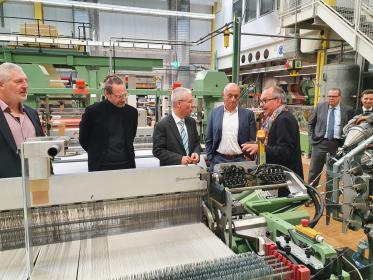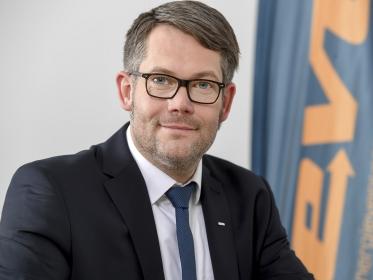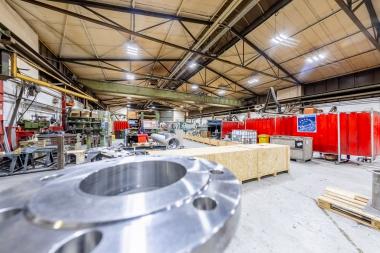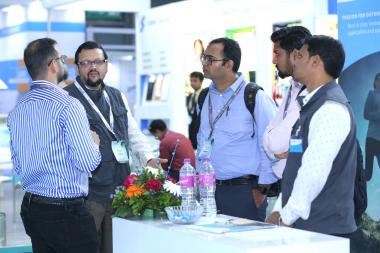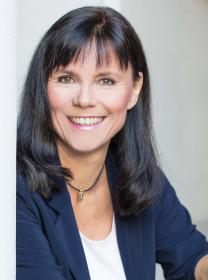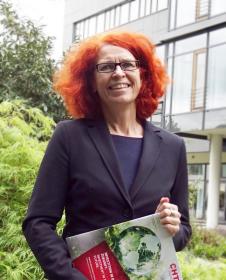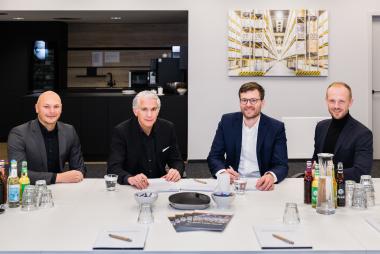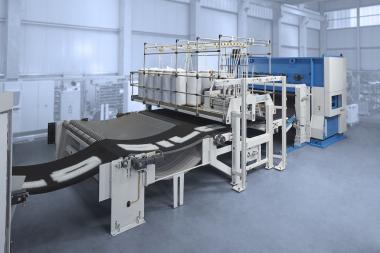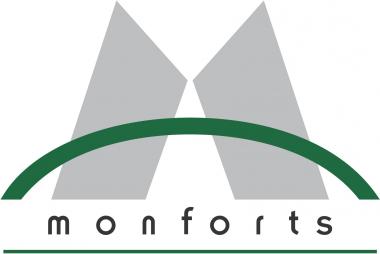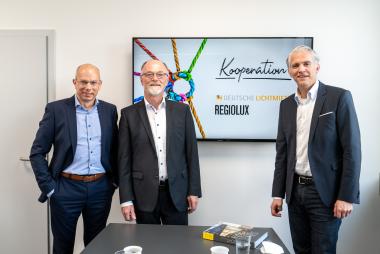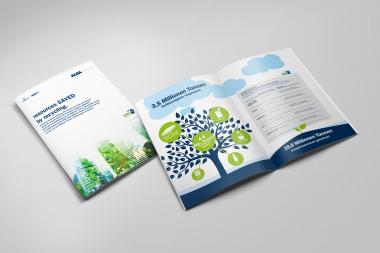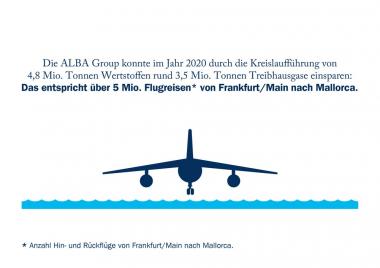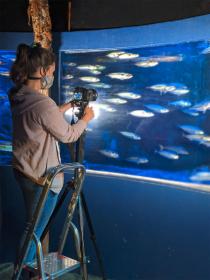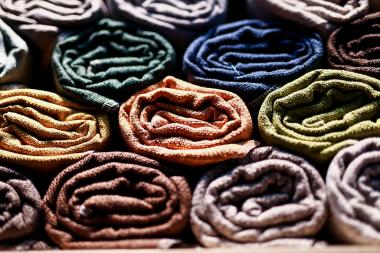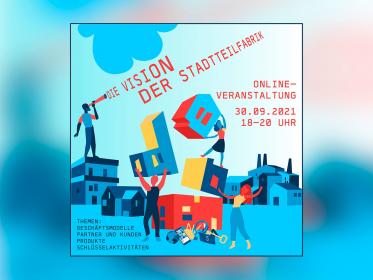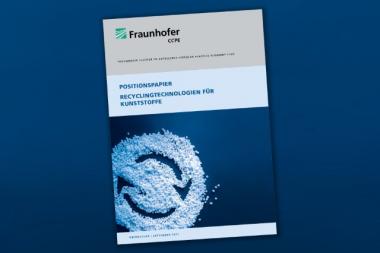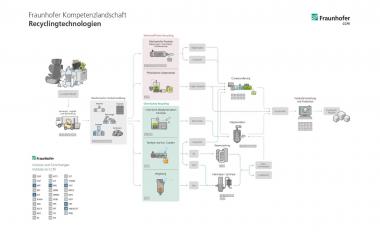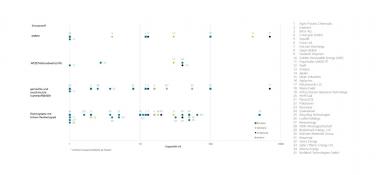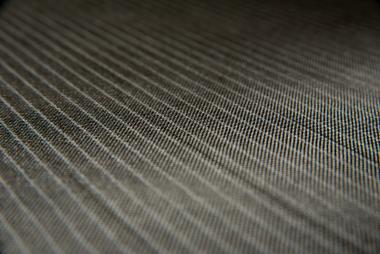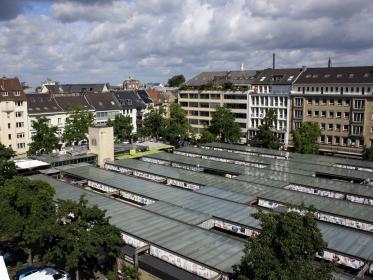Hochmoderne, neue Webmaschine für die Fakultät Textil & Design
Die Firma Lindauer DORNIER GmbH spendete der Fakultät Textil & Design der Hochschule Reutlingen eine neue Hochleistungs-Luftdüsenwebmaschine. Das Familienunternehmen mit Sitz in Lindau am Bodensee zählt weltweit zu den Technologieführern im Bereich Textilmaschinenbau.
Die gespendete Maschine verfügt über die hochmoderne, patentierte Antriebstechnik und ist eine wertvolle Ergänzung des weltweit einzigartigen Maschinenparks der Fakultät Textil & Design im Bereich der textilen Lehre. Inhaber und Geschäftsführungsvorsitzender, Dipl.-Ing. (FH) Peter D. Dornier, übergab “das Geschenk“ persönlich und betonte dabei, die seit Jahrzehnten und bereits zu Zeiten der Gründung der Lindauer DORNIER GmbH in den 50er-Jahren bestehende, vertrauensvolle Partnerschaft mit der Fakultät Textil & Design und deren Vorgängerorganisationen.
Studierende der Fakultät Textil & Design erhalten an der neuen Luftwebmaschine Praxis-Unterricht auf dem neuesten Stand der Technik.
Das Schussgarn wird mittels Luftstrahl ins Webfach eingetragen. Eine Technik, die insbesondere bei hohen Schusseintragsfrequenzen elektronische Regelungen für Luftdrücke und Blaszeiten der Luftdüsen im Millisekundenbereich für einen stabilen Maschinenlauf und eine hohe Gewebequalität erfordert. Die Webmaschine verfügt über die weltweit einzigartige und patentierte Antriebstechnik DORNIER SyncroDrive®. Zwei servogeregelte Motoren sorgen hier für den separaten Antrieb von Webmaschine und Fachbildeeinrichtung mit elektronischer Synchronisierung. Das Ergebnis ist die Minimierung der Gleichlaufschwankungen und die Schwingungsreduktion und damit die Maximierung der Konstanz der Gewebequalität.
Die konsequente, konstruktive Umsetzung physikalisch-technischer Zusammenhänge wird in dieser Maschine an einer Vielzahl von Einzelheiten erfahrbar und begreifbar. Damit wird die Theorie aus der Vorlesung in idealer Weise eindrücklich unterstützt und ergänzt.
In einer, nach aktuellen Verordnungen, klein gehaltenen Feierstunde brachten der Präsident der Hochschule Reutlingen, Prof. Dr. Hendrik Brumme und der Leiter des Fachgebiets Weberei, Prof. Dr.-Ing. Ulrich Scholze der Firma Lindauer DORNIER den Dank für die Spende zum Ausdruck. Dipl.-Ing (FH) Peter D. Dornier wünschte sich in seiner kurzen Rede eine interdisziplinäre Nutzung der Webmaschine durch Textiltechnologie sowie Design-Studierende und zeigte die vielversprechenden Chancen der Textiltechnologie für die Gestaltung einer nachhaltigeren Zukunft auf.
Die großzügige Spende ist ein Meilenstein in der langjährigen Beziehung zwischen der Fakultät Textil & Design und der Firma DORNIER, deren Inhaber sich auch als Stiftungspräsident der Walter-Reiners-Stiftung stark für den textilen Nachwuchs engagiert.
Ergänzt wurde die Spende der Webmaschine mit dem von der Kuenzel GmbH, Münchberg, kostenlos überlassenen Webblatt, sowie der gestifteten Webkette und Schussgarne durch die Zweigart & Sawitzki GmbH & Co.KG, Sindelfingen.
Hochschule Reutlingen


